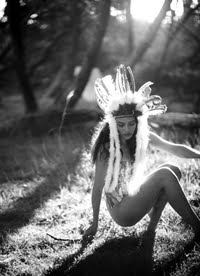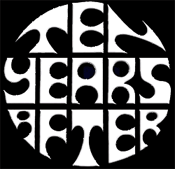


Fred Neil (March 16, 1936 – July 7, 2001) was an American blues and folk singer and songwriter, whose career developed in the 1960s and early 1970s, getting away from the music scene since then until he died. Best remembered for writing hits like "Candy Man" by Roy Orbison and "Everybody's Talkin'" by Harry Nilsson, as well as the ballad "A Little Bit Of Rain", and the rock standard "The Other Side of This Life", most famously covered by Jefferson Airplane.
Born in Cleveland, Ohio, but raised in St. Petersburg, Florida, Neil was one of the singer-songwriters who for a time worked out of New York City's famous Brill Building. He has often been called a pioneer of the Folk rock & Singer-songwriter musical genres; his most frequently cited disciples are Karen Dalton, Tim Hardin, Dino Valenti, Vince Martin, Peter Stampfel -of the avant-folk ensemble The Holy Modal Rounders-, John Sebastian -The Lovin' Spoonful, Jerry Jeff Walker, and Paul Kantner -Jefferson Airplane-, but maybe his most prominent descendants have been Tim Buckley, Stephen Stills, David Crosby and Joni Mitchell. Some of Neil's early compositions were recorded by Buddy Holly and Roy Orbison; he played as a session guitarist on "Dream Lover," the 1958-hit by Bobby Darin, and he even became demo singer for an Elvis movie soundtrack session at the end of the 50's. By then, Neil recorded six singles for different labels, mostly rockabilly-pop oriented, at the time he keep on composing at the Brill Building for other artists. Although it wasn't until 1968, when Nilsson recorded a cover version of Neil's song "Everybody's Talkin'," which became a huge hit a year later when it was featured in the film Midnight Cowboy.
According to Anthony DeCurtis' Rolling Stone obit on Fred, "...So why is Neil a hero to David Crosby? Because back when Crosby was an aspiring folkie who just arrived in New York, Neil bothered to take an interest in him, just as he did for the young Bob Dylan, who backed Neil on harmonica at the Cafe Wha? in Greenwich Village. "He taught me that everything was music," Crosby says...."
Richie Havens, in his memoir, recounts Fred Neil and then-partner Vince Martin's ability to get the audience up and clapping with an entry through the audience, sans microphones, relying only on their harmonious vocals.
Neil was an accomplished professional musician atypically inclined to a very modest frugality. Perhaps because his grandmother influence, Fred sang on a gospel church band when he still was a child, acquiring a black music background that'd be always at the bottom of his music. At the end of the 50's, still influenced by his beloved Hank Williams, Neil started to perform at the Greenwich Village coffeehouses, urban blues à la Josh White or Leadbelly
"Candy Man", covered by Roy Orbison introduced him to a sufficient income stream for life in his early 20s; he became increasingly disinclined to work if he really did not feel to want to do it. Consequently his five albums are remarkable for their singularly unpretentious authenticity. His combination of baritone vocal and 12-string guitar stunning strumming remains unusual, and his combo recordings provide his shimmering melodies with muscular grooves. But his exemplarity is that of resolving the apparent opposition between aesthetic integrity and commercial value almost entirely in favor of aesthetic integrity, which gives all of his recordings a unique historical resonance.
His approach to melody was more in the manner of Cole Porter and to rhythm very much in the school of Ray Charles. His first LP, "Tear Down The Walls", was taped as duo with his Coconut Grove friend Vince Martin, showing an exquisite control of folk-blues repertoire, with some raga-like touches here and there, that advanced forthcoming foreigner manners, when he'd be joined on many live sets during 1965 and 1966 by The Seventh Sons, a mostly instrumental Village trio, leaded by his colleague Buzzy Linhart on guitar and vibes. Disgracefully, any recording was saved of Neil backed by the Linhart crew.
But his more popularly acclaimed albums are Bleecker & MacDougal (reissued in 1970 as A Little Bit of Rain) (Elektra,1965) and Fred Neil (relaunched in 1969 as Everybody's Talkin') (Capitol,1967), recorded during his residences in the Greenwich Village section of lower Manhattan in New York City and in Coconut Grove, Florida, respectively, although for the latter one the recording sessions took place in LA.
Very interested in dolphins since the mid-1960s, when he'd started to visit the Miami Seaquarium, Neil (with Ric O’Barry) founded The Dolphin Research Project in 1970, an organization dedicated (according to Fred himself) to stopping the capture, trafficking and exploitation of dolphins worldwide. Always on his way, since then Neil was progressively disappearing from the studio recordings and live shows.
About 70's -all still unissued- recordings, a rare session was taped around 1973 with John Cipollina, one of the guitarists of Valenti's founded band Quicksilver Messenger Service. Aside, Ric O'Barry's claimed at an interview for the unofficial -if most comprehensive- online website (fredneil.com), that two albums recorded between 1977 and 1978, including each one around 10 songs -only covers, no new songs-, were left out finally by Columbia. On the first of those Miami recordings, Fred was joined by Pete Childs on guitar, John Sebastian on harp, and Harvey Brooks on bass, the sessions produced by O'Barry himself. Meanwhile the second album was more fully arranged and, surely, over-produced, Fred accompanied by NY-sessionists pro band Stuff, and some Fred ol' friends like Slick Aguilar. All the songs performed by Neil for these recordings were covers of songwriters like Bobby Charles -from among whose authorship Fred recorded three songs-"Hey Joe"'s writer Billy Roberts, John Braheny and Bobby Ingram.
About live dates, Fred also started a long retirement from them after playing with Stephen Stills at the Madison Square Garden in NYC in 1970, performing only after that at gigs for the Dolphin Project Revue in Coconut Grove, although in 1977 he'd reach to play in Tokyo during another benefit show for the Revue.
A fundamental live date in July 1975 during The Montreux Jazz Festival, a show attempted to be released as a live LP by his former manager Mike Lang -one of the organizers of the 1969 Woodstock Festival-, and 70's Grove scene habitual, Fred being joined on this occasion by maybe his most permanent musicians ever: John Sebastian on harp, Harvey Brooks on bass and Pete Childs on guitar. His last official show was at the Coconut Grove Playhouse in 1986, performing with Buzzy Linhart, who played vibes. Anyway, unofficially Neil joined some friend in the Florida Keys and around the Woodstock area (upstate NY), coffee-house audiences not knowing who was he really, another detail that increased his mysterious personality until the very end.























































































4 comments:
wow, I've been looking for this jewel. Thanks deja!
Thanks for this great record-What an amazing & soothing voice! Enjoy your time off-
I’m not that much of a online reader to be honest but your
blogs really nice, keep it up! I'll go ahead and bookmark your site to come back later. Many thanks
Check out my homepage :: Elite Ecig
Hello, I enjoy reading all of your article. I wanted to write a little comment to support
you.
Look into my web-site - Elite Ecig
Post a Comment